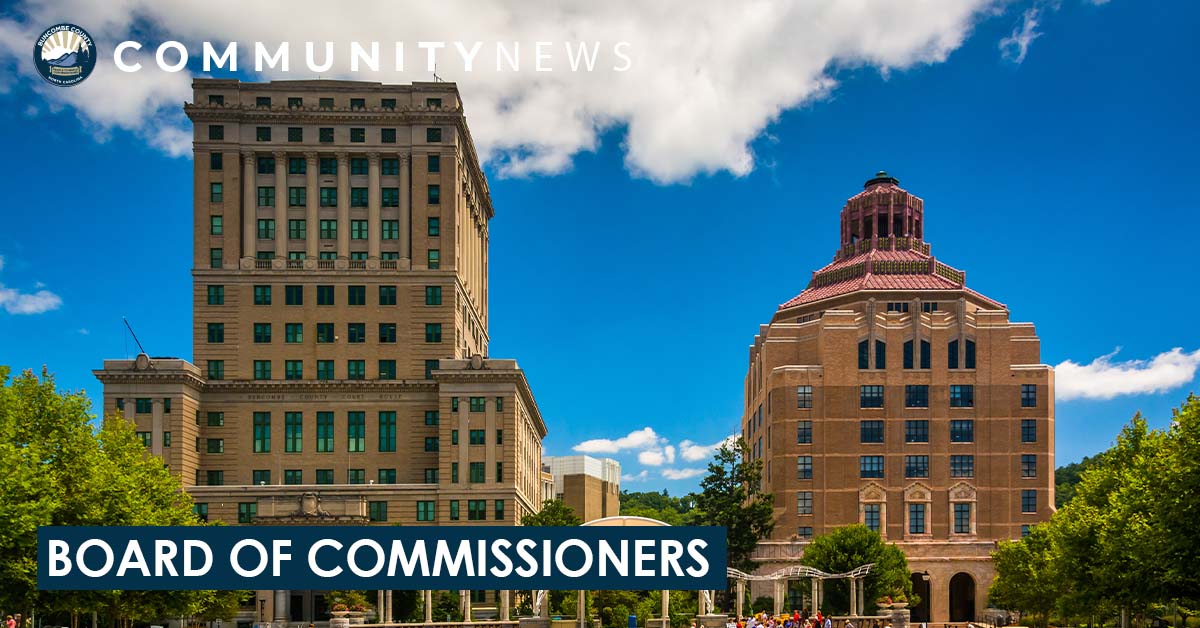
It’s summertime, and hopefully you’re taking advantage of the County’s parks, pools, and other recreational amenities. During its meeting on July 16, the Board of Commissioners officially declared July as Parks & Recreation Month. The proclamation reads in part: “Buncombe County's Parks & Recreation promotes health and wellness, improving the physical and mental health of people who utilize parks. Through events like the Lake Julian Park campout and kids’ fishing events, Parks & Recreation promotes time spent in nature, which positively impacts mental health and wellbeing.” You can read the proclamation in its entirety here.
Looking for summertime fun? From pools to soccer fields, and bird watching to paddle boats – Buncombe County Parks & Recreation has something for everyone. Check out our park portfolio and programming calendar here.
Rezoning public hearing
Commissioners approved the rezoning of 1.78 acres of land at 99999 Yates Ave. in Black Mountain from R-1 and CR to R-1. The change in designation will allow for a mix of rural uses such as low-density homes, some agricultural and forested working lands, and limited commercial applications. The County’s Planning Board unanimously recommended that Commissioners approve the rezoning. You can see the presentation about the rezoning here.
MAT grants
Buncombe County’s Medication-Assisted Treatment (MAT) program is getting an expansion. Commissioners approved accepting $265,000 in grant funding from the NC Department of Public Safety for the Sheriff’s Office. The program will be utilized in the County’s Detention Center to increase MAT staff. No County funding is required to accept the grant. You can view the budget amendment here.
Opioid Settlement funding
Commissioners approved entering into a settlement with Kroger Co. regarding its distribution of opioids. The amount of funding is yet to be determined or distributed, but money stemming from this settlement will be used on community resources to address the opioid epidemic. Since 2000, it is estimated that more than 37,000 North Carolinians have died due to opioid use with the CDC estimating a nationwide economic burden of $78.5 billion every year due to healthcare costs, lost productivity, treatment costs, criminal justice involvement, and more. You can read the resolution here.
FTA funding transferCommissioners approved rescinding $1.3 million in Federal Transit Administration (FTA) funding and are offering that money to the City of Asheville’s transit system. The County would not be able to spend that money before the expenditure deadline. The following funding amounts in the following funding categories are recommended to be rescinded:
- $512,430 in FY2018 Section 5307 annual allocations
- $72,319 in FY2018 Section 5307 JARC (Job Access Reverse Commute)
- $763,168 in FY2019 Section 5307 annual allocations
- $26,880 in FY2019 Section 5307 JARC
You can read more about this funding transfer here.
MHO property tax exemption
Commissioners approved giving Mountain Housing Opportunities a tax exemption for its affordable housing project at Lakeshore Villas. The move comes after the Affordable Housing Committee recommended the tax exemption as it is consistent with standards from the Affordable Housing Services Program.
MHO’s Lakeshore Villas project will provide 120 affordable units for rent to low- and moderate-income households. The project is supported by $3,618,318 in AHSP Loans using General Obligation bond funds and up to $2,776,616 in Buncombe County COVID Recovery Funding provided as a grant. You can read the resolution here.
Resolution opposing private school vouchersCommissioners are urging state lawmakers to oppose private school vouchers. The Board brought forward and approved a resolution that states: “North Carolina faces challenges such as inadequate funding for public education, ranking near the bottom nationally in K-12 funding, and lagging behind our neighboring states in teacher compensation. Diverting taxpayer funds toward unaccountable, taxpayer-funded private school vouchers undermines the integrity and effectiveness of North Carolina's public education system.” Instead of private school vouchers, Commissioners are asking the General Assembly for prioritize public schools by:
- Substantially increasing teacher salaries in order to pay teachers as the professionals they are and to attract and retain qualified educators.
- Allocating significant funding toward early childhood education, quality childcare, and pre-kindergarten programs to ensure all children have access to a strong educational foundation.
- Placing a moratorium on taxpayer-funded private school vouchers until public schools are fully funded, ensuring taxpayer resources are invested in accountable and regulated public education institutions.
You can read the resolution here.